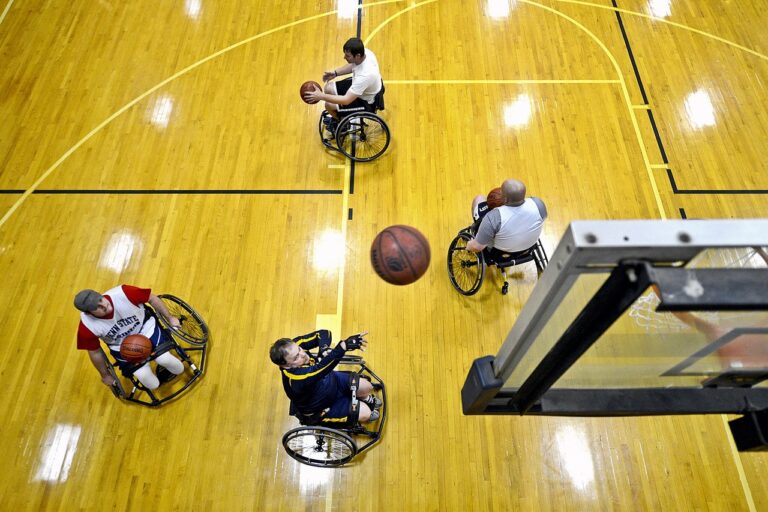Childhood Vaccination Schedule: What Parents Need to Know
Vaccinations are crucial for children as they provide protection against serious and potentially life-threatening diseases. By immunizing children at a young age, we are not only safeguarding their health but also creating a shield of immunity within the community. Vaccines help build a defense mechanism in the child’s body so that if they come into contact with a disease-causing germ, their immune system is prepared to fight it off effectively.
Failure to vaccinate children not only puts them at risk of contracting preventable diseases but also heightens the chances of outbreaks occurring within the population. Vaccinations play a key role in maintaining public health by minimizing the spread of infectious diseases. When a significant portion of the population is vaccinated, it creates herd immunity, protecting those who are unable to receive vaccines due to medical reasons or age. By staying up-to-date with recommended vaccination schedules, we are contributing to the well-being of our children and the community at large.
Vaccines Recommended for Infants
For infants, vaccinations are crucial to protect them from serious diseases. Some of the recommended vaccines for infants include the DTaP vaccine, which protects against diphtheria, tetanus, and pertussis. Additionally, the Hib vaccine safeguards against Haemophilus influenzae type b, a bacterium that can cause meningitis and pneumonia.
Another important vaccine for infants is the IPV vaccine, which protects against polio, a highly infectious viral disease that can lead to paralysis and even death. The PCV13 vaccine is also recommended for infants, as it prevents pneumococcal disease, which can cause ear infections, pneumonia, and in severe cases, bloodstream infections and meningitis. It is essential for parents to follow the recommended vaccination schedule to ensure their infant is protected from these preventable diseases.
Recommended Vaccination Schedule for Toddlers
One of the most effective ways to protect toddlers from serious illnesses is through the administration of vaccines according to the recommended schedule. By following the vaccination timetable, parents can ensure that their children are safeguarded against potentially harmful diseases. It is crucial to consult with healthcare providers and adhere to the suggested vaccination plan to maintain the health and well-being of toddlers.
The recommended vaccination schedule for toddlers typically includes vaccines for diseases such as measles, mumps, rubella, chickenpox, and polio, among others. These vaccines are designed to provide immunity against contagious infections that can have severe consequences if contracted. Ensuring that toddlers receive their vaccinations on time is essential in safeguarding not only their health but also the health of the broader community.
• Measles
• Mumps
• Rubella
• Chickenpox
• Polio
It is important for parents to keep track of their child’s vaccination records and make sure they are up to date with the recommended schedule. Vaccines work best when administered at the appropriate age, so it is crucial to follow the timetable provided by healthcare professionals.
In addition to protecting toddlers from serious illnesses, vaccines also help in reducing the spread of infectious diseases within communities. By ensuring that children are vaccinated according to schedule, parents can contribute to creating a safer environment for everyone.
Regular check-ups with healthcare providers can help parents stay informed about any updates or changes in the recommended vaccination schedule. It is essential to address any concerns or questions regarding vaccinations with medical professionals to make well-informed decisions for the health of toddlers.
Why are vaccinations important for children?
Vaccinations are important for children as they help protect them from serious and potentially life-threatening diseases. By getting vaccinated, children build immunity against various illnesses and help prevent the spread of diseases within the community.
What vaccines are recommended for infants?
Some of the vaccines recommended for infants include the Hepatitis B vaccine, Rotavirus vaccine, Diphtheria, Tetanus, and Pertussis vaccine (DTaP), Haemophilus influenzae type b (Hib) vaccine, Pneumococcal vaccine, Polio vaccine, and Influenza vaccine.
What is the recommended vaccination schedule for toddlers?
The recommended vaccination schedule for toddlers includes vaccines such as Measles, Mumps, and Rubella (MMR) vaccine, Varicella (chickenpox) vaccine, Hepatitis A vaccine, Influenza vaccine, and any boosters for vaccines received during infancy.
When should toddlers receive their vaccinations?
Toddlers should receive their vaccinations according to the schedule recommended by the Centers for Disease Control and Prevention (CDC) and their healthcare provider. Vaccines are typically administered at well-child visits starting from birth and continuing throughout childhood.
Are there any potential side effects of vaccinations for toddlers?
Like any medical intervention, vaccines can have side effects. However, the benefits of vaccination far outweigh the risks. Most side effects are mild and temporary, such as soreness at the injection site or a low-grade fever. Severe reactions are rare.
Can toddlers catch up on missed vaccines?
Yes, toddlers can catch up on missed vaccines by following a catch-up schedule recommended by their healthcare provider. It is important to ensure that children receive all recommended vaccines to protect them from preventable diseases.







